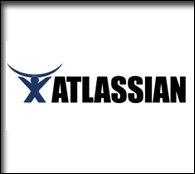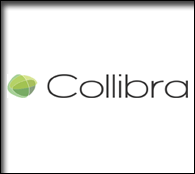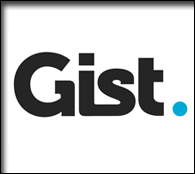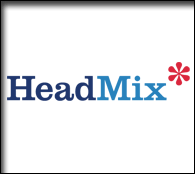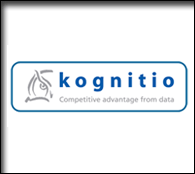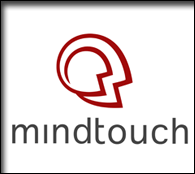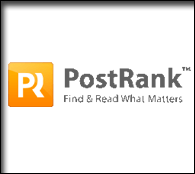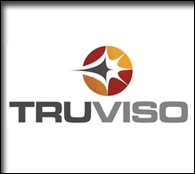Archive for July, 2009
Andy Kessler: “Be Soylent - Eat People”
by Eric Norlin on Jul.31, 2009, under Uncategorized
I’ve been emailing back and forth with Andy Kessler about his Defrag keynote (okay, I emailed and just asked him for a session title; he did all of the substantive emailing). The keynote is titled “Be Soylent - Eat People” — which is a great title, but may not really convey what Andy will be discussing. As such, Andy’s kindly given me permission to quote a portion of our email exchange (without giving too much away) to help explain things a bit more:
The project that i’ve been working on is a set of filters or rules on how to find things/trends that go up and to the right. so many business ideas or projects or careers sound enticing, but have no staying power, they’re one and done’s. how do you find order amongst the chaos?
one of the rules is Be Soylent - Eat People.
it ends up being a roadmap for the next set of jobs that will be destroyed (and of course, shine light on all the jobs that will be created, more than making up for the jobs lost)
Bottom-line: Andy’s gonna start us off (opening keynote) with an amazing framework for considering the rest of Defrag’s topic sets. You *really* don’t wanna miss this, and you certainly won’t get this elsewhere.
Resolving some dissonance
by Eric Norlin on Jul.30, 2009, under Uncategorized
Yesterday, I had one of those mini-moments of events colliding and leading to cognitive dissonance. The first event was confirming that Anil Dash would be coming to share his thoughts on “The Pushbutton Web” at Defrag. The second event was when Sameer Patel mentioned that Defrag was part of “enterprise computing month” on Twitter (he said that because e2.0, Defrag and KMWorld line up on 3 consecutive weeks). And that’s where the dissonance kicked in.
I don’t think of Defrag as “an enterprise 2.0″ conference. I don’t think of Defrag as a “knowledge management” conference. Some of what we cover certainly touches on those areas, but really, I think Defrag sits at the intersection of those - and many other - topics.
I think back to the impetus for Defrag: Brad Feld blogging about how he had this “theme” he was investing in, but he didn’t have a good name for it. He was calling it “intelligence amplification” (descriptive, but not snazzy). That phrase later became “the implicit web” (Brad, Fred Wilson and a bunch of other folks were using it).
In the early talks with Brad about Defrag, I landed upon this analogy: Think of the internet (in the broadest sense) like us creating a global brainstorming session. We’ve solved the need to be on at the same time (simultaneity). We’ve solved the co-location problem. We’re even getting a lot better at knowing who’s in the room with us (identity). But what we haven’t solved yet are building tools/technologies that actually ACCELERATE the process of insight.
That was the basis for Defrag’s “accelerating the ‘aha’ moment” tagline. And it leaves us pretty wide open - topically speaking.
As of late, I think the “phrasing” of Defrag has gotten even easier. Fred Wilson wrote a post the other day about “Making the web smarter” and basically nailed what I think Defrag is about. Defrag is simultaneously about dealing with the flow of information (and fragmentation of that information flow) in the digital age, building software that begins to replicate intuitive happenings, building things that makes “the web” smarter, and building things that help individuals and groups accelerate the process of insight when they’re dealing with different data sets.
Does that touch upon (or maybe even - dare i say it? - encompass) “enterprise 2.0″ and knowledge management?
Let me end with examples. Just check out the keynoter list (not complete) for Defrag -
Andy Kessler: legendary investor, author and thinker — coming to address info fragmentation
Dave Winer: the father of blogging, RSS, podcasting — now talking about “rebooting the news”
Stowe Boyd: self-described “web theorist” (I agree) — talking semiotics and microsyntax
Lili Cheng: a researcher in the field of “social computing” - and we don’t just mean twitter (but gaming)
Chris Sacca: ex-super cool Google guy, twitter investor — speaking about big, hairy web trends
John Winsor: author of Spark and Baked-In — relaying why the product is the brand (and what that means)
Chris Shipley: long-time startup analyst; DEMO fame — talking startup trends
Anil Dash: blogger, startup guy, all-around thinker — the “pushbutton web”
Kim Cameron: chief identity architect at Microsoft — talking about identity’s foundational role in…everything
…and many many others.
I think it’s pretty obvious that Defrag isn’t another enterprise 2.0 or knowledge management show. I’d love the opportunity to show you why that is (and why I think you’ll LOVE the conversations that happen at Defrag). I hope you’ll join us.
Balancing the agenda - an ask
by Eric Norlin on Jul.25, 2009, under Uncategorized
I just noticed the the O’Reilly folks are taking some heat via a petition around not having enough women on the agenda for the Web 2.0 Summit, and I wanted to make a quick comment.
The “lack of female participation” on tech conference agendas is something I’ve been thinking about/working on/troubled by for a while now. Which is to say that I don’t think any of “us” (as conference organizers) are succeeding as we could on this - yet.
So, let me address this directly. Here are the women currently on the agenda (which is incomplete) for Defrag:
Laura Fitton
Andrea Baker
Chris Shipley
Lili Cheng
Maggie Fox
Deborah Schultz
It should be said that in NO WAY do I mean to imply that these folks are somehow less “experts” or qualified to present at Defrag, and were chosen simply because they were women. Quite the contrary - I think they’re all brilliant and love hearing their perspectives (gender has nothing to do with it).
It should also be said that I am sensitive of the “balancing the agenda” problem, as I too find it disturbing when you pull up a conference website and all that you see are white, male faces.
I would also note that I’ve invited a whole host of other women to present that can’t make it for one reason or another (folks like Esther Dyson, Ann Winblad, Elizabeth Churchill, etc).
Bottom-line: I’m more than aware of the issue. To the point that I’ve asked some women in the tech industry to “put the word out” as well. And now I’m coming to you - suggestions? Please send them my way (enorlin AT mac.com). If someone’s a great fit for the agenda, I’d love to include them.
I know this is a “sensitive issue,” and I wanted to just get it out in public that over at Defrag, I’m “working on it” (though I’m not sure I know exactly what that means), and probably the best way to work on it is to ask for help from all of you. Thanks.
The link, the subscribe and the open follow
by Eric Norlin on Jul.25, 2009, under Uncategorized
In case you haven’t heard, the Associated Press appears to be committing hari-kari under the guise of a “business model.” It would seem (from what I’ve been reading) that they want to require a license with them simply to quote a headline *or* link to a piece of their work. Obviously, they’re trying to go after Google and other aggregators. The move is monumentally stupid, and really does seem to mark one of those moments in history when we look back and say, “oh yea - that was the moment that marked the whole downfall of the newspaper business.” But that’s not what I’m thinking about this morning…
What I’m thinking about is the link, the subscribe and the open follow.
If you think about the “power” (opportunity?) of the internet not in technical terms, but in conceptual ones, then I’d argue that there are three (maybe 4) conceptual pieces that have really advanced the opportunity of the web.
The link: The mother of all internet opportunity is the link (hypertext). Conceptually, the link is like nothing before it - though I’m sure that if Johannes Guttenberg had been able to conceive of it, he would’ve loved it. The link brings a level of inter-connectedness to the pages, thinking, concepts, sites on the web that makes it foundational. There is no “internet community forming” without the link; it’d just be a huge compilation of separated writings.
The subscribe: I originally thought this might be called “the post” (with the advent of blogging tools), but conceptually, you could always “post” to the internet, it was just a matter of how high the technical hurdle was. The real conceptual addition was the subscribe. Suddenly, the internet went from static but interconnected pages to a semi-dynamic world wherein the “pages” came to you. The subscribe did not get us to “real-time,” but it did remove the necessity of “place” (ie, “go” to a web page).
The open follow: I first heard “the open follow” discussed by Mitch Kapor at Gluecon. That may not be the first time it was mentioned, and Twitter may not be the first place it happened, but that’s not the point. The concept of the “open follow” on Twitter — ie, that you can follow people you don’t know or that don’t follow you back is HUGELY important (I’d argue). Granted, I may be missing a small intermediary concept in here (that moved us to near real-time webby stuff), but I don’t think the “real time” aspect is nearly as important (because you’ll never ACTUALLY achieve real-time), as the open follow. The open follow doesn’t require any pre-existing relationship. And really, that’s what made email explode (it was an early pre-cursor to open follow, as you could email someone without actually knowing them).
Those three concepts pretty neatly outline three “epochs” or eras on the internet. The link is the web of pages. The subscribe is the “live” web. And the open follow is the (for lack of a better term) “real-time” or interactive web. All three contribute a foundational concept to building the internet. All three open up HUGE spaces for entrepreneurial innovation. All three lead to completely unforeseen possibilities.
Meanwhile, the AP withers…
A quick defrag idea — thoughts?
by Eric Norlin on Jul.23, 2009, under Uncategorized
Just had an idea, and I’m looking for feedback: I know that there are defrag sponsors that are hiring. I know that there are defrag attendees (or potential attendees) that are either contractors looking for projects, or people looking for employment.
So, what if Defrag put together something that helped get these folks together? We could do something to facilitate meetings on-site, and perhaps a private wiki space for folks to post needs, etc. Yea, kinda like a job board, but I’m thinking we might be able to do something much more intimate and powerful.
Thoughts?
Moving beyond RSS (maybe)
by Eric Norlin on Jul.23, 2009, under Uncategorized
Something weird is happening with me and RSS. I should preface this by saying that I’m a *classic* late adopter (insert irony here) for a ton of things (I don’t have an iPhone; hell, i don’t CARRY a cell phone 90% of the time), but a semi-early adopter for other things. The things I tend to early adopt are “social media” related - blogs, RSS, twitter, etc.
I think I was pretty early on the RSS adoption curve, and I was a true believer. I STOPPED going to websites. If I couldn’t get a full RSS feed from the site, bye-bye. My feed reader (NetNewsWire) became a monstrous collection of information and one of the centers of my online life (next to email). I railed at other conference organizers that didn’t understand the power of RSS. Like I said, true believer.
And then Twitter happened (how I got into Twitter is another story for another time). It was a novelty, a distraction, kind of cool. But then it became a source of links, info, news. It was faster, came in the “flow” of my day, didn’t require me to “go” anywhere - and I kinda just started to figure (paraphrasing Stowe Boyd) that “if it’s important, it’ll find me.”
Recently, I purchased a new MacBook Pro and spent 20 days working remotely (on the road). I never loaded up my RSS reader, nor did I load feeds into Mac’s mail app. And the strangest thing happened — I started *going* to websites. I’d hit techmeme and memeorandum, and maybe 1 or 2 tech bloggers I know, but beyond that it was all twitter.
Now I’m home again, and using my RSS reader, but it almost feels like a chore; like there’s this big pile of steaming hot feeds that I must plow through and zero out if I’m to complete my daily tasks. RSS is just the algorithmic river. Twitter is curated, human.
I’ve begun to unsubscribe from feeds to see if that helps. I’m guessing it won’t. I think my use of RSS (at least inside of a reader) is dying. And I don’t think it’s coming back.
We’ll see.
(obligatory promo: Is email dying? Is RSS going away? Is Twitter the second coming? These issues and oh-so-much more at Defrag, November!)
Open-ended Scarcity (and abundance)
by Eric Norlin on Jul.22, 2009, under Uncategorized
I’ve been doing a lot of open-ended thinking lately about scarcity. By “open-ended,” I mean that I’m not thinking toward any resolution, so much as I’m just thinking about the concept.
Scarcity is most often thought of in economic terms — where a great majority of economic value is derived from scarcity (or scarcity coupled with demand). When there’s not a lot of oil, and people want it, value lies there. That’s the obvious example. But scarcity can also be seen in things like Google — where scarcity is actually people’s ability to *find* the right thing (a scarcity of the ability to discover). Scarcity can also apply to IP — a software company’s value coming from the fact that it has a scalable solution where no other real solution exist. Or, in our post-web 2.0 world, scarcity might lie in the aggregation of audience (Twitter’s got so many people using it that I can’t find anywhere else). You see my point. Scarcity, no matter how you bend and twist it, is the point where value accrues.
Over the past decade or so, some folks have tried to argue that the internet is creating some sort of “post-scarcity” economy. After all, the “internet” (as a resource) never runs out (at least theoretically). I’m not sure I buy that. There are *always* limits. The cost of adding to the infrastructure that can eliminate scarcity may drop to near-zero, but there are ALWAYS limits; if not on the “internet” per se, then on the attention that people have or something. And that’s where value accrues on the internet.
Then I started thinking: what is the point of scarcity around enterprise 2.0? Don’t get me wrong, I can point to lots of *reasons* that contain “scarcity” that lead to using enterprise 2.0 tools (”we need to get this info in a collaborative space, as people’s time is scarce” or “you mean no one in this company has ever done this before?”), but I’m having a hard time seeing exactly where the tools directly touch a point of scarcity. Let me see if I can elaborate…
Check out the EventVue widget on the Defrag homepage (”discover which of your contacts are attending”). It’s a pretty simple (and powerful) idea - people are more likely to register for a conference if they can see who else in their networks is going. The “scarcity” for the attendee is around a way to *know* that your time/money are worth spending on the conference. The widget gives you an easy way to begin discovering that (via implicit recommendations). The “scarcity” for the conference organizer is also easy to see: I want as many quality attendees to come as I can get (i.e., quality attendees are a scarcity).
Now look at RSS readers, or wikis, or intranets, or file sharing. Is it easy to identify the scarcity? Maybe, maybe not. The “easy” answer is that the scarcity is attention, or time, or actionable knowledge. Or maybe the scarcity lies around the idea that more efficient business processes can be found (efficiency is scarce). Or maybe it’s “discoverability” (so much hidden/dark knowledge inside of companies). But shouldn’t scarcity almost kick you in the gut.
I’m hungry when food is scarce.
Gas is more expensive when there’s not enough oil.
Should I attend this conference (money and time are scarce)? Oh wait - person X that I trust is attending.
I guess I’m looking for some feedback. What’s the dead simple, obvious point of scarcity that enterprise 2.0 tools are addressing? Are the issues too amorphous? Are they not “meta” enough? I don’t know. I’m asking.
Any way you slice it, scarcity isn’t going away. We’re all finite creatures (metaphysical and religious interpretations exempted) and therefore one of the hallmarks of our individual and collective experiences must be scarcity. It may not be pretty, fair or fun - but it’s sure as hell true.
The real question, then, is how can we leverage scarcity to our advantage? Just as I know that scarcity isn’t going away, I’m equally as certain that abundance is a fundamental quality of the world we live in. I never run out of the ability to meet new people with new ideas and newer (sometimes better) ways of doing things. Those ideas always start (whether knowingly or unknowingly) from the “itch” that is scarcity — and they lead (inexorably and inevitably) to abundance and opportunity that we are nearly incapable of fathoming.
It’s two sides of the same innovation coin: scarcity and abundance; creative destruction. And I think that the more deeply we can think through HOW the products and services we’re building leverage scarcity into abundance; indeed, the more directly we can call that OUT and NAME it, the better off we’ll be. It’s the ole “as soon as you can *name* a problem, you can solve it.”
What’s say we try to stop echoing each other with grand visions of collaborative teams holding hands around a glorious “flat” organization where information flows like rivers of milk and honey (endlessly creating productivity and dollars), and start trying to concretely identify the points of SCARCITY that our efforts are going to turn into abundance?
Any takers?
Cowboy hats and Cuban Cigars
by Eric Norlin on Jul.18, 2009, under Uncategorized
I’m not sure what *exactly* this has to do with Defrag, but I’m filing this under “things I’ve experienced as of late that may hold something to explore.” In roughly the last month, I’ve experienced two cultural niches that are fairly distinct from each other: Ybor city and the Flea Market at the Belle-Clair Fairgrounds.
Ybor is the “latin quarter” of Tampa. Think amazing spanish/cuban cuisine (The Columbia is a must eat-at restaurant that’s been there since 1905), and LOTS of old cuban men hand-rolling cigars on the sidewalks of storefronts. On any given saturday during the summer, you can come pretty close to feeling like you’re no longer walking the streets of a U.S. city.
The flea market at the belle-clair fairgrounds is exactly what you’d think it is if you’re ever been to a midwestern flea market. Aisles of “junk” (or treasure, depending) with a few little goodies thrown in to keep you interested (for example, a PERFECT death star set from the original Star Wars figurine set). Corn dogs, kettle corn and gooey butter cakes are surrounded by knives, trinkets, antiques and baseball cards.
Side by the side, the two are both uniquely fun and incredibly different.
It gets me thinking about two things:
1. I hear all this talk about how “culture” is the essential component in “enterprise 2.0″ deployments, and I’m left wondering how in the world we can speak of “culture” in such a bland, un-embodied way. Culture isn’t “flat” versus “hierarchical” — culture is margaritas or martinis; folgers or starbucks; sawdust or concrete. In other words, culture is something our physical bodies *experience* - not simply something we can talk about “opening” or “closing” in a corporate sense. And yet all of the enterprise 2.0 “culture” talk I hear sounds so relatively uniform.
…which brings me to #2
2. The echo chamber. I can’t stand it. Now, the echo chamber can exist anywhere - in fact, it’s something we all (entrepreneurs, individuals and *especially* communities) should be “guarding” against. The echo chamber simply reinforces existing beliefs and sets up feedback loops that gets the group singing Kumbaya and nodding approvingly. The echo chamber is one of the reasons you’ll hear me rail against locating 90% of all tech conferences in California (the bay area). I don’t CARE if a high percentage of software geeks live there — the fact is that there is value in getting out of your normal cultural and community scene and plopping yourself into the middle of something new (geographically, sub-culturally). PLUS, it starts to break down the echo chamber. I try so hard to avoid an over-abundance of “echo chamber” speakers at defrag — and sometimes we fail and sometimes we succeed, but being in Ybor and now (today) the flea market reminds me why it’s so good.
Because we can learn something from cowboy hats AND cuban cigars.
Agenda additions
by Eric Norlin on Jul.17, 2009, under Uncategorized
A week flies by and I haven’t managed to blog. I mean, I’m able to spew tweets like a frat boy that’s over-consumed his favorite alcoholic beverage, but blogging? eh.
That said, we’re adding all kinds of things to Defrag - and agenda-wise, there are some notables:
Dave Winer: I’ve known Dave since, like 1999-ish, spoken with him on the phone, corresponded via email, and always admired his work (and significant, and often wrongly uncredited, place in the development of all of these things we call “social media”). I’m very pleased to announce that Dave will be making his first U.S. speaking appearance in five years at Defrag — and we’ll be discussing “rebooting the news.”
Andrea Baker: Some of you know my history in the intelligence world (and if you do, shhhh - mouths shut!), so I was happy to read that Andrea and I share some common background. I’m even happier to add her to the agenda.
Paul Miller: Paul’s about as knowledgeable as it gets when you’re talking semantic web. I’ve been a long time fan of his writings, and I’m glad to finally get to meet him in person at Defrag.
I’ve detailed some of our other speakers previously, but the list alone is worth mentioning: Andy Kessler, Lili Cheng, Chris Sacca, Stowe Boyd, Kim Cameron, John Winsor, Paul Kedrosky, Roger Ehrenberg, Chris Shipley, Jerry Michalski, Louis Gray, Deb Schultz, Buzz Bruggeman, Robert Scoble, Howard Lindzon, Laura Fitton, Sameer Patel, and many others.
I hope you’ll join us.
Chris Sacca confirmed for a keynote
by Eric Norlin on Jul.11, 2009, under Uncategorized
…just wanted to drop a quick note (in case you didn’t catch it on the twitter stream) to let everyone know that Friday I confirmed Chris Sacca as a keynoter for Defrag. If you’re not familiar with Chris, he’s a venture investor that was previously the head of special initiatives at Google, and has been called “possibly the most influential businessman in America.” Oh, and by the way, he’s one of the original investors in twitter.
You can check out his full bio here. I’m very glad to add Chris to our keynote list. As I’ve said before, much much much more to come (I’ve got an inbox full of things I’m working on on this front). Be sure to join us.
